For Yechan Lee, who hails from Bihar, and Luna Yogini, Koreans with roots in Kolkata, India is not just a place on the map, but a profound essence woven into their very being. Their heritage may be Korean but hearts beat to the rhythm of India.
In an interview with indianexpress.com, Luna and Yechan, embark on a journey of introspection, exploring the profound notion that home is not confined by geography but a sanctuary for the soul.
Luna’s Bengal connection stemmed from her family’s link to Indian spirituality. Raised in Kolkata by her mother, Luna discovered a profound sense of belonging in Bengal’s lively culture, diverse ambiance, and rich traditions.
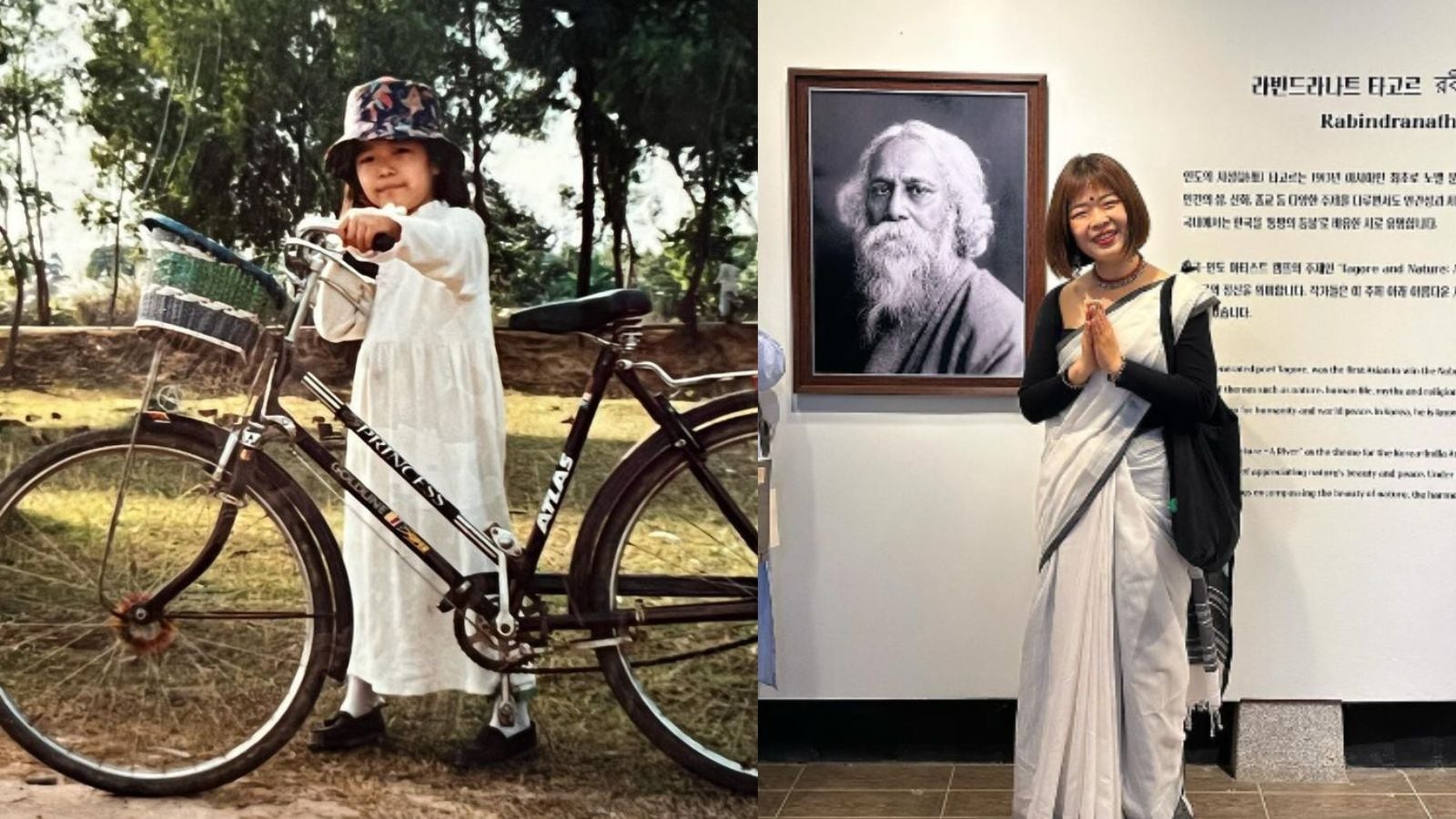 Young Luna with a famous cycle brand Atlas. Luna, now, draped in a saree celebrating Rabindra Jayanti.
Young Luna with a famous cycle brand Atlas. Luna, now, draped in a saree celebrating Rabindra Jayanti.
“She selected Kolkata due to its significance as the birthplace of revered figures like Paramhansa Yogananda, Ramakrishna Paramahansa, Swami Vivekananda, Shrii Shrii Anandamurti, and Rabindranath Tagore—individuals she deeply admired and respected,” Luna says.
Yechan emphasised his connection to Bihari culture and language was deeply ingrained through his upbringing in Patna, where he spent 20 years. “It was not a matter of becoming interested (in the culture), but rather a natural experience for me like all other Indians who grew up in India. It would be funny if you asked an Indian how they became interested in Indian culture,” he said.

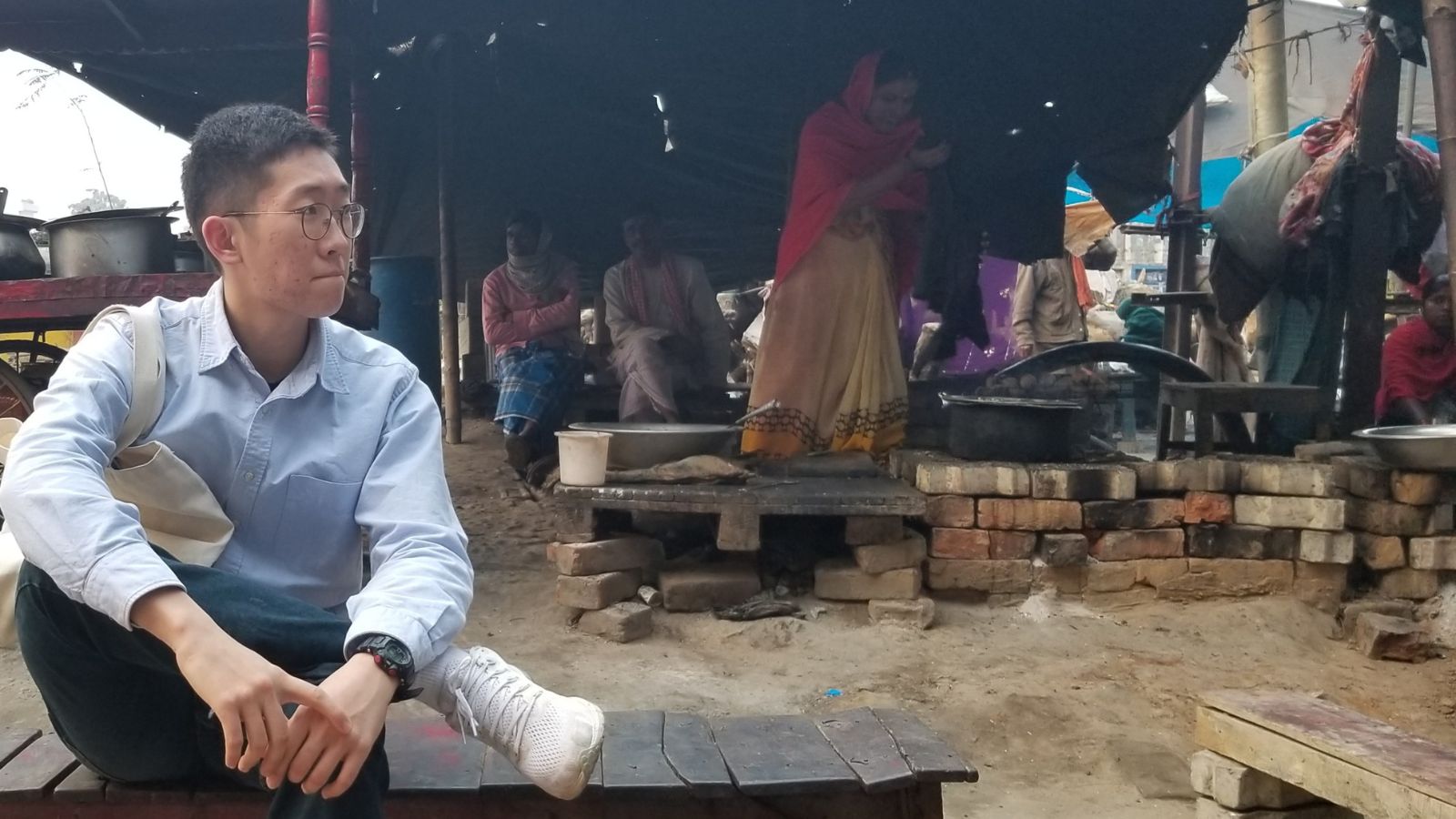 Yechan at a local shop in the city.
Yechan at a local shop in the city.
India and Korea: Same same but different
Luna recognised similarities between Koreans and Bengalis, particularly in their reverence for elders. She said, “Both Bengali and Korean cultures hold deep reverence for elders.” Yechan noticed the same. “Respect for elders and taking care of parents and grandparents are important aspects of both cultures,” he said.
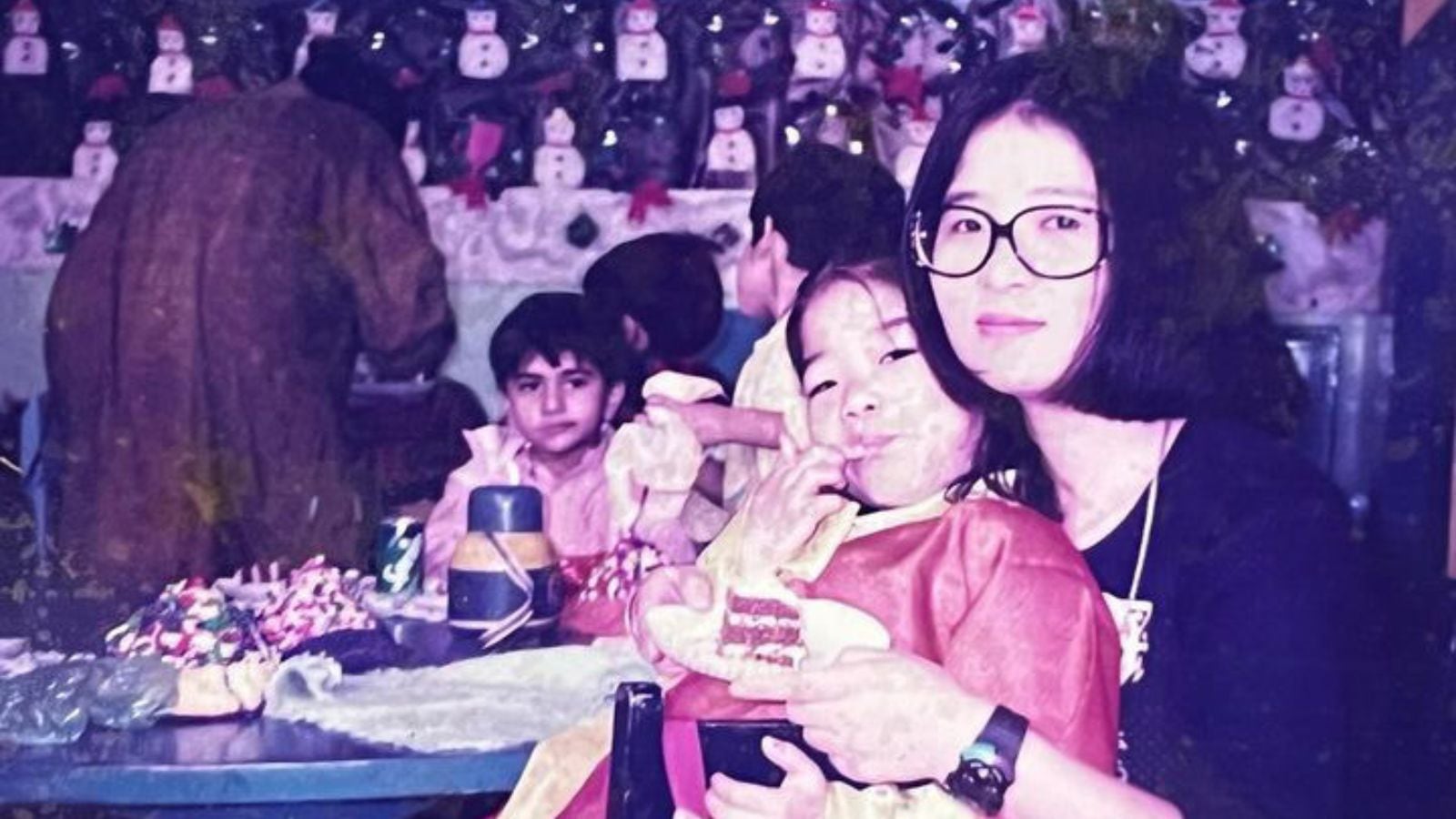 Luna’s mother dressed her in a Korean Hanbok on her birthday.
Luna’s mother dressed her in a Korean Hanbok on her birthday.
Luna finds Korean and Bengali languages similar when it comes to how sentences are structured. “Both languages share a similar sentence structure, with subject preceding object and verb,” she said. Despite linguistic differences between Koreans and Biharis, Yechan said he navigated them smoothly, noting the similarities between Korean and Hindi, which made communication easier.
Noting how culinary preferences also connected India and Korea, Luna said, “Bengalis and Koreans alike add a touch of sugar to enhance the flavour of their savoury dishes. Hence, I have noticed how much Koreans enjoy Bengali food!”
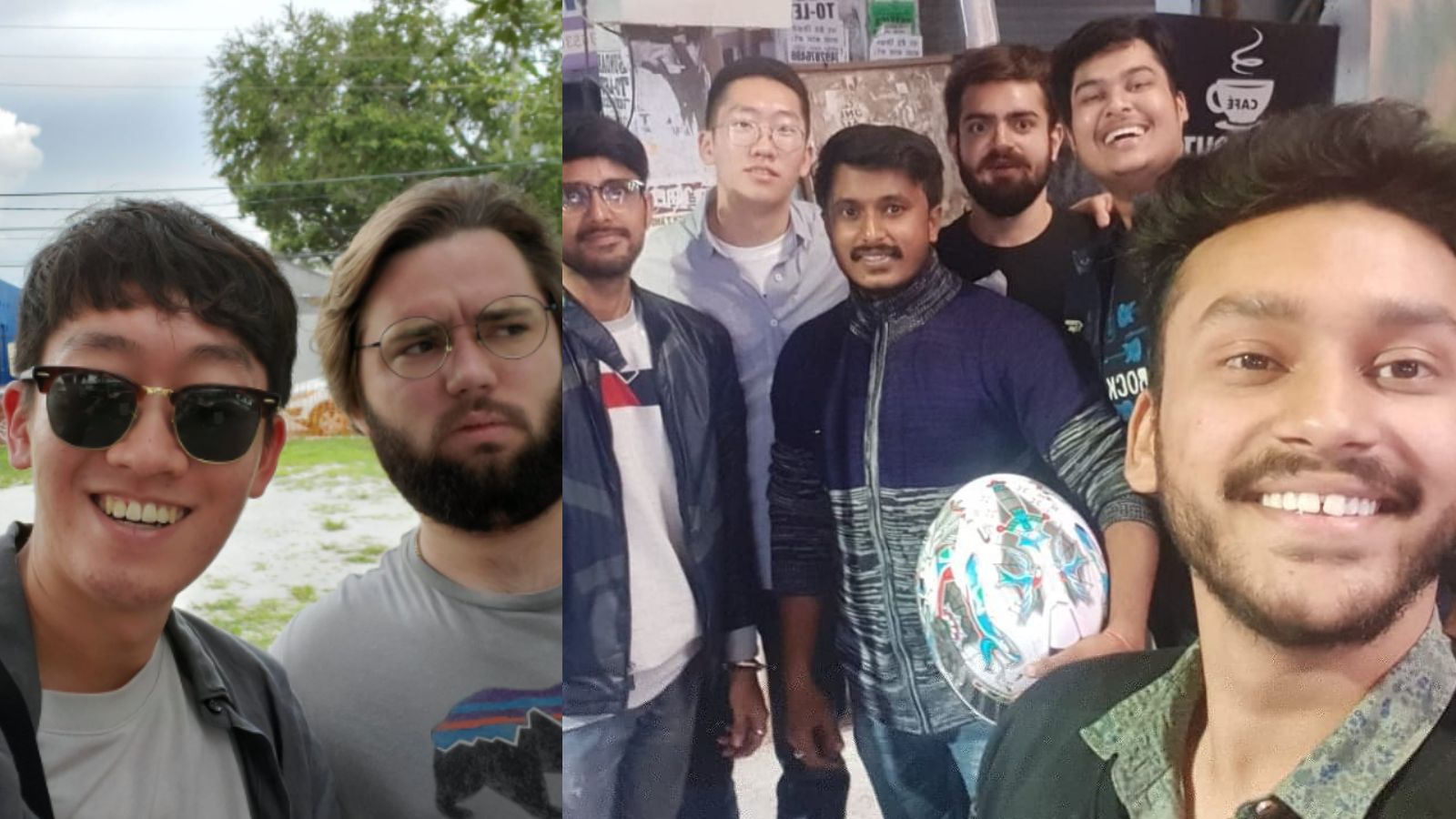 Yechan shared how he is showered with love and a lot of food when he hangs out with his loved ones.
Yechan shared how he is showered with love and a lot of food when he hangs out with his loved ones.
Yechan recounted his experiences visiting friends’ homes; how ‘aunty jee’ always warmly welcomes him with ‘meethai’ (sweets) or snacks, along with a heartfelt offer of chai. He sees it as a gesture of kindness and respect. He also observed their generosity during meals, consistently offering more food out of love, even when he insists he’s full.
Luna has experienced the same in Bengal. “I love the conversations over chai, basically, the ‘adda’ culture! I love how the people warmly invite you to feed you full, thus making me a ‘petuk’!”
The one difference Yechan noticed between Koreans and Biharis is on how they follow trends. “Many people in Korea are trend sensitive. If something is trending, such as fashion, everyone will start following the trend. In Bihar, I don’t see people caring too much about what the trend is or how others are wearing their clothes,” said Yechan.
Life and culture
Throughout her time in Bengal, Luna found herself enamoured by various aspects of Bengali culture. From engaging in philosophical discussions during daily conversations to enjoying the warmth of Bengali hospitality, and partaking in the tradition of learning art and music, Luna embraced the essence of Bengal wholeheartedly. Despite the initial challenges of adjusting to life in Bengal, such as encountering attempts at being cheated by some locals, Luna’s fond memories of enjoying simple pleasures like ‘Daal-Bhaat,’ and overcoming language barriers with her mother, underscored her profound connection to the region.
What fascinated Yechan most about Bihari culture compared to his Korean background was the relaxed and laid-back nature of life in Bihar. He learned valuable lessons about not taking things too seriously, and the importance of not comparing oneself to others. “Living life as an individual as well as a part of a community, there are always things or people to compare yourself to. I try not to compare myself to others and instead focus on myself, being grateful for what God has gifted me with today,” he said.
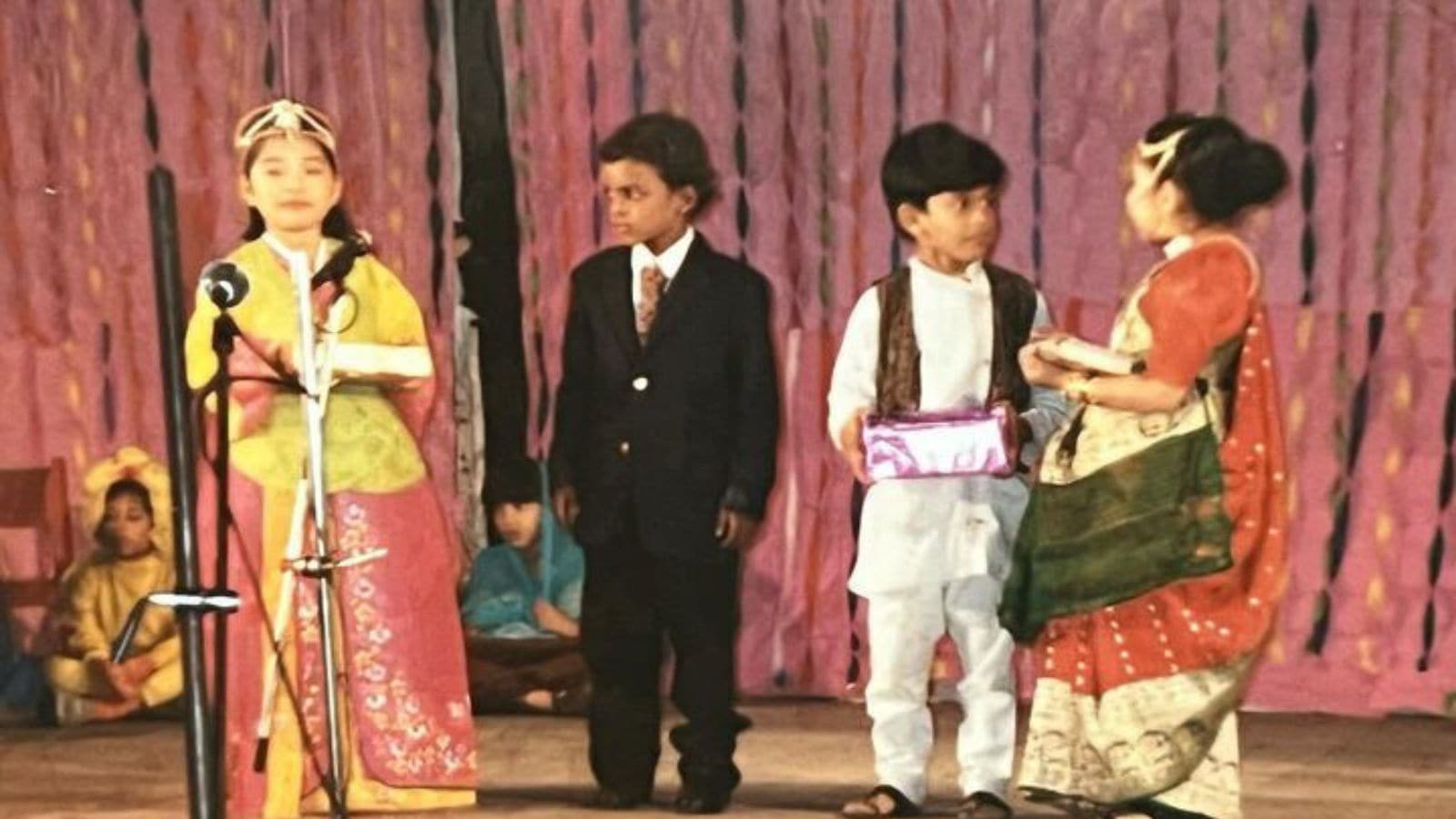 During her school years, Luna represented Korea very proudly in Kolkata.
During her school years, Luna represented Korea very proudly in Kolkata.
As an active participant in Bengali festivals and celebrations, Luna embraced the Bengali tradition of ‘Daak naam’ (nickname). Her Bangla name, Nirmala, was bestowed upon her by an Indian saint in Korea and is cherished as her spiritual name. Combining it with her Korean name, Dasom, which translates to ‘love’, she finds beauty in intertwining both identities, symbolising ‘pure love’ when merged.
Elaborating on another similarity between Bihari and Korean cultures, Yechan said, “Both cultures celebrate various traditional festivals. For example, in Bihar, festivals like Chhath Puja and Holi are widely celebrated, while in Korea, festivals like Lunar New Year (Seollal) and Harvest Festival (Chuseok) hold significance.”
Yechan also addressed misconceptions about Bihar, such as its reputation for crime and its education system. His personal experiences contradicted these stereotypes. He stressed on the quality of education he received in Patna.
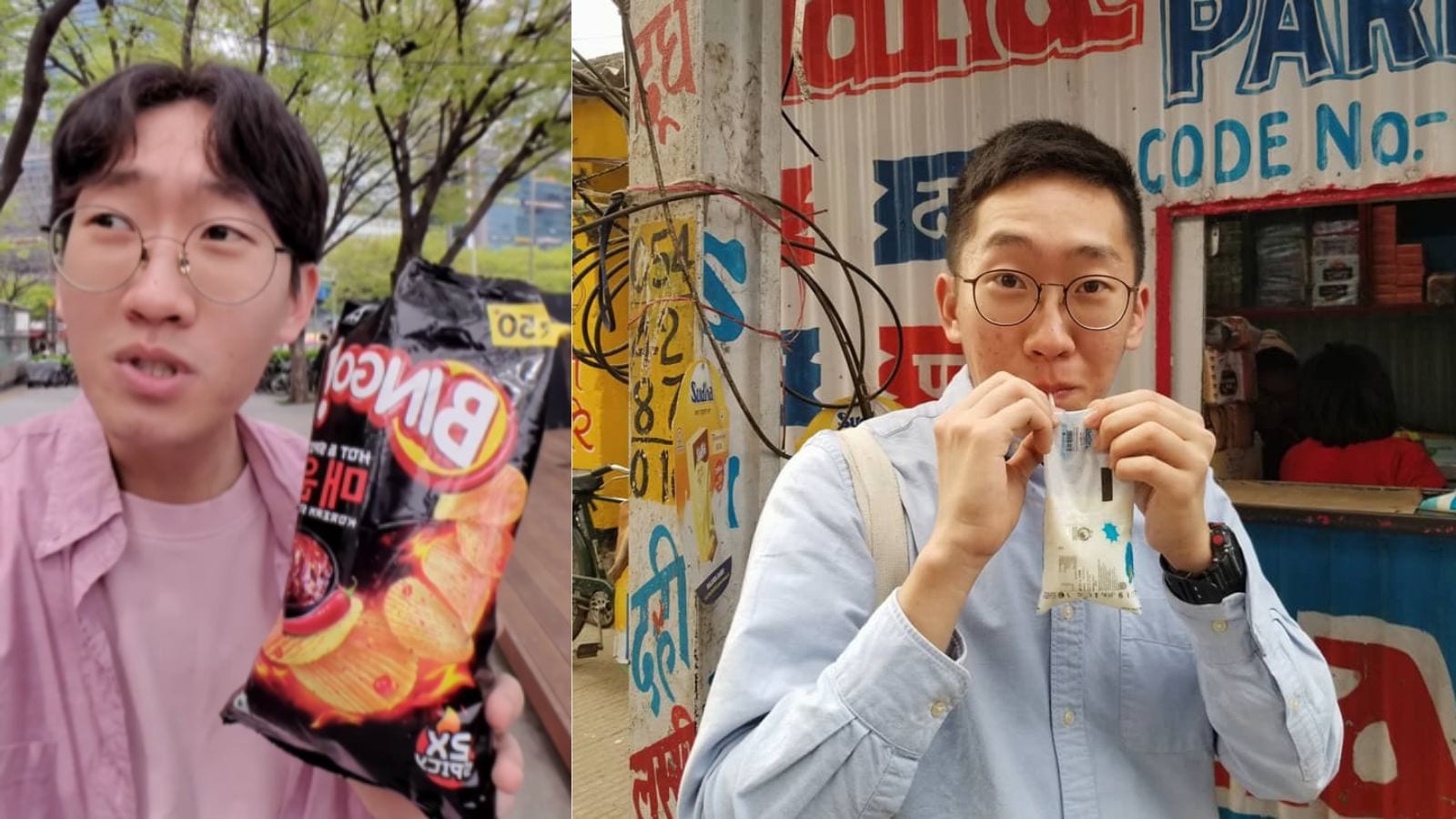 Yechan enjoying local and Indian delights.
Yechan enjoying local and Indian delights.
Luna says, “I love how in Bengal, a simple daily conversation turns into a philosophical discussion over life and existence. I love how every Bengali household upholds the culture of learning some form of art, music, and dance. I also appreciate how Bengali families have the culture to plan for family trips in various parts of their country and abroad.”
As Luna intertwines her Bangla and Korean names, Yechan bridges linguistic gaps with ease. These two Indo-Korean souls epitomise the essence of cultural fusion and acceptance.




















